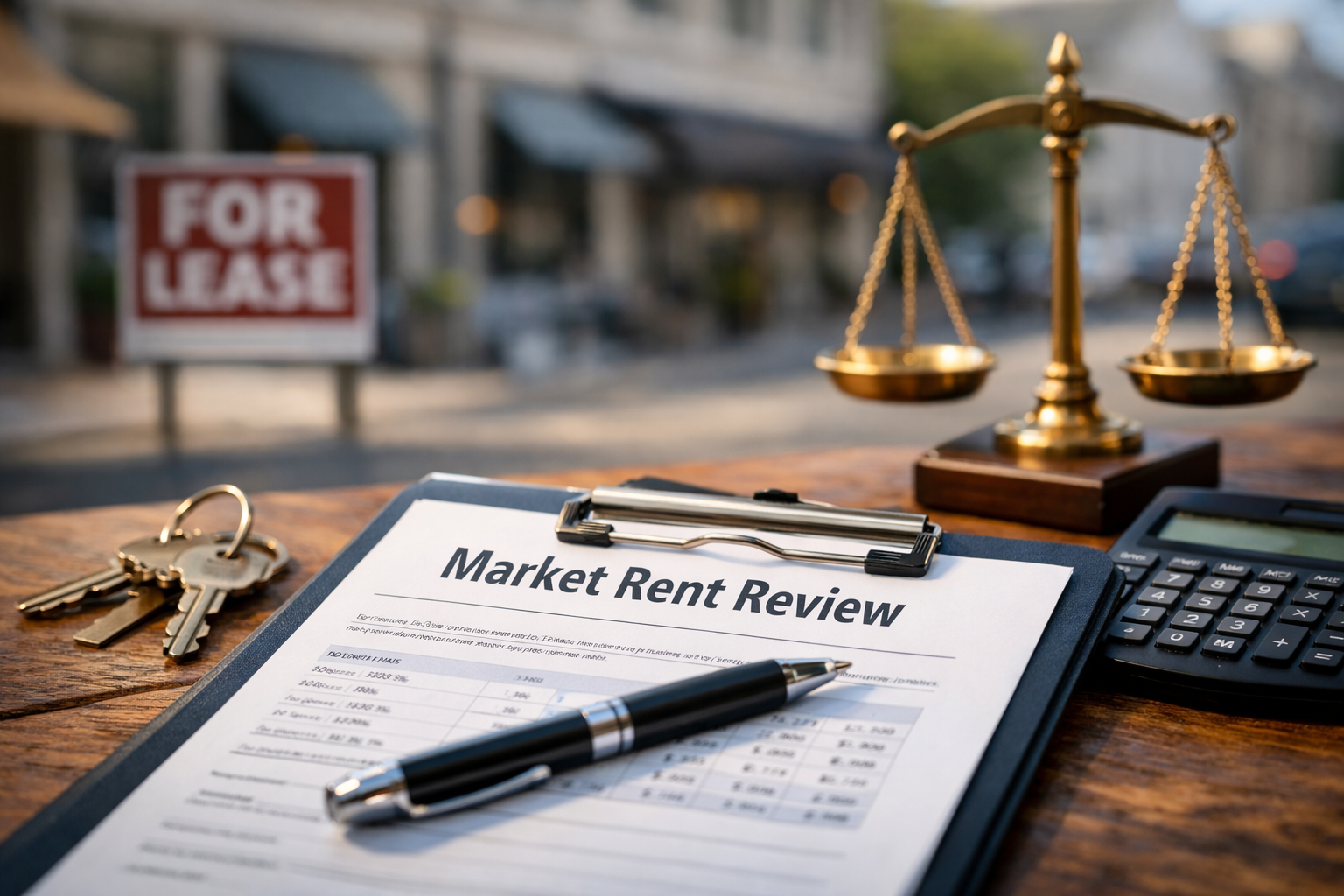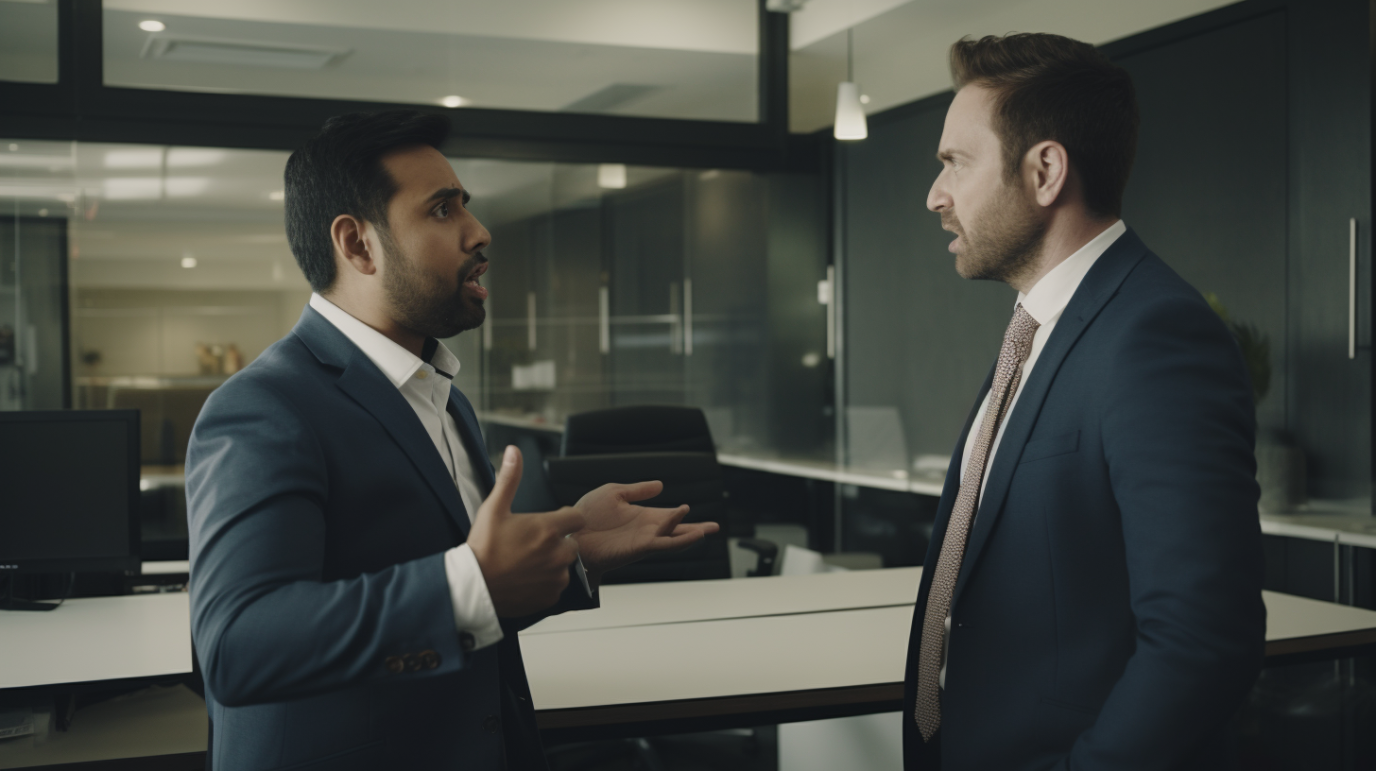Table of Contents
Toggle- Debt Recovery Advice to Creditors and Debtors
- Letter of Demand and Calderbank Letter of Offer
- Recover Unpaid Accounts for your Business
- Suing for a Debt in the Courts or Tribunal
- QCAT Minor Debt Dispute or Claim and Statement of Claim
- Enforcing a Judgment or Money Order
- Companies Served With a Creditor’s Statutory Demand
- Statutory Demands and Winding-up Applications
- Bankruptcy and Personal Insolvency
- Credit Agreements, Contract Terms, and Guarantees
- Caveats, the Enforcement of Mortgages other Security
- Personal Property Securities Registration
- Mareva Injunction / Freezing Order
- Debt Recovery Solicitors – How Can They Help You?
- What are Debt Recovery Legal Services?
- What is the Role of Debt Recovery Solicitors?
- What are Business Debt Collection Specialists?
- What are the Steps in the Debt Collection Process?
- Preparing a Claim & Statement of Claim
- Entering Judgement Early (Default or Summary)
- Debt Recovery Solicitors – QCAT
- Enforcing the Judgement Against the Judgment Debtor
- Enforcing the Judgment in the Court
- Summon the Debtor to an Enforcement Hearing
- Issuing an Enforcement Warrant
- Enforcement Warrant for Seizure and Sale of Property
- Enforcement Warrant for Redirection of Earnings
- Enforcement Warrant for Redirection of Debt
- Enforcement Warrant for Regular Redirections from Financial Institutions
- An Order for Payment by Instalments
- The Winding Up Process
- The Presumption of Insolvency
- Bankruptcy, Insolvency & Debt Recovery Solicitors
- The Proximity between Debt Recovery, Bankruptcy & Insolvency
- Understanding the Debt Recovery Process
- Tips for Negotiating in Debt Disputes by Debt Recovery Solicitors
- How to Choose the Right Debt Recovery Solicitors
- When to Seek Legal Assistance of Debt Recovery Solicitors
- Costs and Fees Involved in Using Debt Recovery Solicitors
- Stonegate Legal Debt Recovery Solicitors
- Debt Recovery Solicitors FAQ
- Why Send a Final Warning Letter Template Before Legal Action?
- What Should I Do If I Receive a Demand Letter?
- What If I Cannot Pay the Outstanding Amount?
- What Is a Statement of Claim?
- In What Period of Time Is a Party Required to Respond?
- How Should I Respond to a Statement of Claim?
- Does A Time Frame Exist for Serving a Statement of Claim?
- What Happens if the Judgement Debt Isn’t Paid?
- What Is Bankruptcy and Insolvency?
- How to Collect Money Owed to a Small Business?
- Is it Important to Keep Records During the Debt Recovery Process?
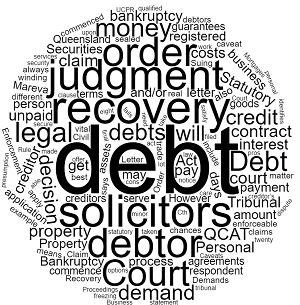 Debt recovery solicitors are legal practitioners, admitted to practise law in their State, Territory, or jurisdiction, who focus on the recovery of debts and the enforcement of money orders.
Debt recovery solicitors are legal practitioners, admitted to practise law in their State, Territory, or jurisdiction, who focus on the recovery of debts and the enforcement of money orders.
Stonegate Legal focus on commercial litigation, debt recovery and insolvency law.
Debt recovery solicitors are different to debt collectors because they are actually admitted solicitors, who have passed the requirements to practice law in Queensland and understand the commercial debt recovery process.
Debt recovery solicitors offer legal debt recovery solutions, including:
- Debt Recovery Advice to Creditors and Debtors;
- Letter of Demand and Calderbank Letter of Offer;
- Recover Unpaid Accounts for your Business;
- Suing for a Debt in the Courts or Tribunal;
- Debt Dispute – Claim and Statement of Claim;
- Enforcing a Judgment or Money Order;
- Companies Served With a Creditor’s Statutory Demand;
- Statutory Demands and Winding-up Applications;
- Bankruptcy and personal insolvency;
- Credit Agreements, Contract Terms, and Guarantees;
- Caveats, the Enforcement of Mortgages other Security;
- Personal Property Securities Registration; and
- Mareva Injunction / Freezing Order.
DEDICATED FOCUS – COMMERCIALLY MINDED – PROVEN RESULTS
OR CALL: 1300 545 133 FOR A PHONE CONSULTATION
Debt Recovery Advice to Creditors and Debtors
It is not just creditors that debt recovery solicitors act for, but we also act for debtors.
It might not always be the case that a debtor does not want to pay, or does not have the means to pay. In some cases a debt may arise because of:
- An unfair contract term (liquidated damages clause for example); and/or
- Incomplete or unsatisfactory work; and/or
- The goods / services provided were not of sufficient quality; and/or
- Any number of other genuine reasons.
We act for both creditors and debtors, plaintiffs and defendants, in all jurisdictions. Debt recovery matters are not always as black and white as people think.
However, the majority of the work that debt recovery solicitors do is on behalf of creditors, chasing unpaid business debts. We usually commence the legal debt recovery procedure by sending the debtor or debtors a letter of demand.
Letter of Demand and Calderbank Letter of Offer
In most cases a letter of demand identifies the parties, identifies the contract, identifies the breach, and demands payment of consideration.
A letter of demand will also put the debtor on notice that a creditor intends to take a legal step in the proceeding should they not attempt to resolve this debt dispute.
At the very minimum, a letter of demand will include the following:
- Proper identification of the debtor – person or company;
- The amount of the debt outstanding, free from costs or interest (if claimed);
- A description of the debt (why the money is owed);
- The nature of the breach and when the debt was due and payable;
- Include the date of the letter of demand;
- Any relevant evidence such as contracts, invoices, emails agreeing to work or other written agreements that you have with the person/company you are claiming the money from.
- A time and date on which the debtor has to pay the debt, 7 or 14 days for example.
We offer a fixed-fee letter of demand for initiating recovery of your outstanding debts.
Recover Unpaid Accounts for your Business
There are a number of different types of debts that arise in daily life. These include credit card debts, medical or dental debts, personal loan debts, unpaid mobile phone debts, unpaid utility bills (after moving for example), bank overdraft charges, unpaid car finance, unpaid payday loans, and so on.
However, the most common type of debt we encounter is unpaid business debts, such as unpaid invoices from a customer after trade credit. For example:
- Your business provided goods and/or services under a contract;
- Your business issued an invoice for the cost of providing those goods and/or services;
- You gave fourteen (14) or thirty (30) days payment terms; and
- They do not pay the invoice.
Business debt recovery is best taken care of by focused debt recovery solicitors to ensure that you get the best possible chance of recovering your money.
We strongly advise attempting to resolve your debt disputes prior to initiating legal action and engaging debt recovery solicitors. Litigation can be costly, and can be a long and drawn-out process. If you can agree to settle this matter without resorting to the expense of a Court action, then we strongly advise you to do so. Skilled debt recovery solicitors can negotiate a settlement with your debtor.
However, this is not always a viable option. Sometimes you will have to commence legal proceedings to recover your debt in a Court or Tribunal, and you have to engage professional debt recovery solicitors.
Suing for a Debt in the Courts or Tribunal
There are two main options in Queensland for recovery of a business debt, and small debt recovery, they are:
- Suing in the Court with jurisdiction; and
- Suing in the Queensland Civil and Administrative Tribunal (“QCAT”).
The jurisdiction of these courts and tribunals are:
- QCAT – small claims of up to $25,000.00
- Magistrates Court – claims up to $150,000.00
- District Court – claims up to $750,000.00
- Supreme Court – claims over $750,000.00
There are pros and cons for commencing proceedings in a Tribunal or commencing proceedings in the Court.
Pros and Cons of Commencing Proceedings in QCAT
The pros of commencing proceedings in QCAT are:
- It is a lot less expensive than commencing in the Court;
- The process can be a lot quicker than the Court;
- QCAT is designed for self-represented people.
The cons of commencing proceedings in QCAT are:
- The minor debt jurisdiction is mostly a no costs jurisdiction. This means that you will not be able to recover your costs save for a few designated items;
- Legal representatives do not have an automatic right of appearance. This means that if you want debt recovery solicitors to appear at a QCAT hearing, you will need the leave of the tribunal, which is not always given;
- The minor debt jurisdiction is capped at $25,000.00.
Pros and Cons of Commencing Proceedings in the Court
The pros of commencing proceedings in the Court are:
- It is a legal process, with judicial officers who understand the law. It is less likely that you will get a non-typical result (as happens in QCAT);
- You can use debt recovery solicitors and barristers to maximise your chances of successfully obtaining your desired outcome;
- You are able to claim costs, either standard costs or indemnity costs of commencing the proceeding.
The cons of commencing proceedings in the Court are:
- It is more expensive than QCAT;
- It can take longer to reach your desired outcome.
QCAT Minor Debt Dispute or Claim and Statement of Claim
Whatever you choose, either an application for a minor debt dispute in QCAT or commencing proceedings in the Court by claim and statement of claim, the processes are similar.
A QCAT minor debt dispute is commenced by application.
The application is completed, and sealed with the seal of the Tribunal. Once sealed you have to serve the respondent with the application. The respondent then has twenty eight (28) days in which to file and serve a response to the application.
Then, both the applicant and the respondent attend a hearing to get the matter resolved.
Proceedings in the Court are commenced by claim and statement of claim. The claim is then filed in the Court with jurisdiction and sealed with the Court’s stamp.
Once you have a sealed version, you (or your debt recovery solicitors) must personally serve the defendant with your claim and statement of claim. Once served they have twenty eight (28) days in which to file and serve their defence and counterclaim.
In any of these jurisdictions, if the debtor (QCAT respondent or Court defendant) fails to serve a response or a defence within twenty eight (28) days, you can apply for a judgment (QCAT decision), allowing you to start enforcement proceedings.
Enforcing a Judgment or Money Order
A decision in QCAT is not an enforceable money order.
Rule 793 of the Uniform Civil Procedure Rules 1999 (QLD) (“UCPR“) says:
“enforceable money order” , of a court, means:
(a) a money order of the court; or
(b) a money order of another court or tribunal filed or registered under an Act in the court for enforcement.
Section 131 of the Queensland Civil and Administrative Tribunal Act 2009 (Qld) says:
(1) This section applies to a final decision of the tribunal in a proceeding that is a monetary decision, to the extent the decision requires payment of an amount to a person.
(2) A person may enforce the final decision by filing a copy of the decision in the registry of a court of competent jurisdiction.
(3) On filing a copy of the final decision under subsection (2), the decision is taken to be a money order of the court in which it is filed and may be enforced accordingly.
So, if you have an enforceable judgment or money order from the Court, or you have registered your QCAT decision in the Court with jurisdiction, and your debtor still will not pay, then you can commence enforcement proceedings to enforce the money order. Our debt recovery solicitors can do all of this for you.
There are a number of different enforcement options, they are commenced by:
- Enforcement hearings;
- Enforcement warrants;
- Statutory demands; and/or
- Bankruptcy notices.
It is very important that you get suitably qualified debt recovery solicitors to make these applications, as strict compliance is usually required.
Companies Served With a Creditor’s Statutory Demand
Once you have an enforceable money order against a company as respondent / defendant, and the judgment debt is for $2,000.00 or more, then one of the best tools for enforcement is serving the company with a statutory demand.
| Issuing Statutory Demands | Setting Aside Statutory Demands |
If the debtor company fails to pay the judgment debt, or fails to “secure or compound for that amount or total to the creditor’s reasonable satisfaction, within 21 days after the demand is served on the company” as per section 459E(2)(c) of the Corporations Act then they are presumed to be insolvent.
Based upon that presumption of insolvency, the judgment creditor can apply to wind up the judgment debtor.
Commonwealth Bank of Australia v Parform Pty Ltd [1995] FCA 1445 said:
To “compound” for a debt is to accept an arrangement for payment of the amount of the debt or of a different amount.
So, if they don’t pay the judgment debt, or enter into a payment arrangement to the creditor’s reasonable satisfaction, then the judgment creditor can apply for a winding up order.
Statutory Demands and Winding-up Applications
Non-compliance with a statutory demand raises the legal presumption that a company is insolvent. With that legal presumption assisting, the judgment creditor can apply to the Federal Court or Supreme Court for an order winding up the judgment debtor company.
Once the winding up order is made, and a liquidator is appointed, then all of the company’s assets can be liquidated to satisfy creditors.
In some circumstances, the liquidator is able to claw back assets which were made prior to the winding up process, adding to the asset pool. These voidable transactions include:
- Unfair preferences payments and uncommercial transactions;
- Unfair Loans; and
- Unreasonable Director-Related Transactions.
It is vital that you seek suitably qualified legal advice and assistance from debt recovery solicitors before attempting to wind up a judgment debtor company.
Bankruptcy and Personal Insolvency
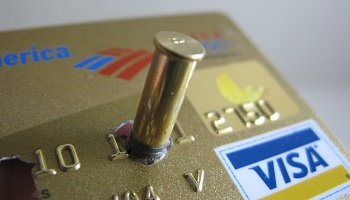 If the judgment debtor is a person (and not a company), and the judgment debt is $10,000.00 or more, then you can commence bankruptcy proceedings.
If the judgment debtor is a person (and not a company), and the judgment debt is $10,000.00 or more, then you can commence bankruptcy proceedings.
Bankruptcy proceedings are commenced by serving the judgment debtor with a bankruptcy notice.
Failure to comply with the bankruptcy notice entitles the judgment creditor to present a creditor’s petition to the Federal Circuit Court.
If a sequestration order is made, forcing the judgment debtor into bankruptcy, then most of their assets can be realised to satisfy the creditors.
The trustee in bankruptcy also has claw back powers under the Bankruptcy Act 1966 (Cth), and can attempt to void any transfer of property that are voidable transactions in bankruptcy. Section 121 of the Bankruptcy Act says:
A transfer of property by a person who later becomes a bankrupt (the transferor) to another person (the transferee) is void against the trustee in the transferor’s bankruptcy if the property would probably have become part of the transferor’s estate
Before thinking about making a judgment debtor bankrupt to satisfy your debts it is vital that you get legal advice from suitably qualified insolvency, bankruptcy and debt recovery solicitors.
Credit Agreements, Contract Terms, and Guarantees
To improve your chances of satisfying your judgment debt by the methods above, debt recovery solicitors can also review your existing, or create new, credit agreements, contract terms, and guarantees.
Having the correct credit agreements, contract terms, and guarantees can drastically improve your chances of securing the total amount claimed, plus costs.
If you are a business that gives credit to your customers, or if you offer trade credit, it is vital that you have legal instruments which you can rely on when you need to.
Some of the options to include in credit agreements, contract terms, and guarantees, are favourable terms in the event of a default, and security for the credit, such as caveats and registrable mortgages over real property, or a registered interest on the Personal Property Securities Register, pursuant to the Personal Property Securities Act 2009 (Cth).
Caveats, the Enforcement of Mortgages other Security
Caveats – A charging clause in a contract may allow you to lodge a caveat over the real property of the debtor as security for the debt.
A caveat is a great tool to protect your interests in a debt recovery matter as it prevents any dealing with the real property until the caveat is removed.
However, care should be taken with caveats! If you do not have a charging clause in your contract, credit agreements, and guarantees, then you will need a “caveatable interest”. Lodging a caveat without a caveatable interest can have serious consequences for you.
Mortgages – A registered mortgage over the debtors’ real property is the one of the best securities that you can have. Unlike the equitable mortgages created by charge (as above) a registered mortgage is a secured interest making you a secured creditor rather than an unsecured creditor.
However, it is highly unlikely that a trade debtor will agree to a registered mortgage on the title to his/her land.
Director’s Guarantees – If you have traded with a debtor company, it is essential that you get a directors guarantee. A personal guarantee guarantees the obligations of the company, so if they default, then you can commence proceedings against the guarantor.
Personal Property Securities Registration
If you are selling goods on trade credit, or finance, then it is essential that you secure your interest in those goods by registering your interest on the Personal Property Securities Register, pursuant to the Personal Property Securities Act 2009 (Cth).
Once again, it is vital that you get this procedure correct. Debt recovery solicitors can take care of your security interests for you.
Mareva Injunction / Freezing Order
Freezing orders, also known as a Mareva order is based upon the English case of Mareva Compania Naviera SA v International Bulkcarriers SA [1975] 2 Lloyd’s Rep 509, and extended to Queensland by Bank of New Zealand v Jones [1982] 2 Qd R 466.
These legal principles were then added to the UCPR by Uniform Civil Procedure Amendment Rule (No 1) 2007, commencing on 1 June 2007.
Rule 260A of the UCPR says:
(1) The court may make an order (a “freezing order”) for the purpose of preventing the frustration or inhibition of the court’s process by seeking to meet a danger that a judgment or prospective judgment of the court will be wholly or partly unsatisfied.
(2) A freezing order may be an order restraining a respondent from removing any assets located in or outside Australia or from disposing of, dealing with, or diminishing the value of, those assets.
The requirements of a Mareva order or freezing order are numerous and complicated. A debt recovery solicitor can help you to freeze a debtor’s property to help secure your chances of getting payment.
Debt Recovery Solicitors – How Can They Help You?
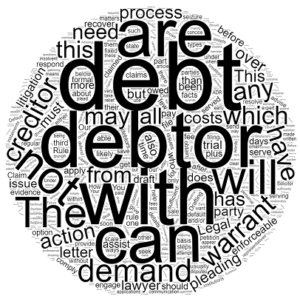 Debt recovery solicitors in Queensland deal with the legal recovery of outstanding debts, and the enforcement of money order judgments.
Debt recovery solicitors in Queensland deal with the legal recovery of outstanding debts, and the enforcement of money order judgments.
Debt solicitors can negotiate on your behalf, attend to alternative dispute resolution (if appropriate), and sue debtors in Court if necessary.
Debt collection solicitors also work for debtors, defending false debt recovery claims against them, or negotiating a settlement of the Court proceedings.
Commercial debt recovery solicitors deal with commercial or business debts, whereas personal debt recovery solicitors deal with personal debts. At Stonegate Legal we do both.
Debt recovery solicitors can also help creditors and debtors navigate the insolvency minefield, helping with corporate insolvency (liquidation) and bankruptcy.
In this article, our debt recovery solicitors outline everything you need to know about debt recovery, the enforcement of money order judgments, and/or insolvency.
Are you looking for the best debt recovery solicitors to help with unpaid debts?
CONTACT A DEBT SOLICITOR TODAY
OR CALL: 1300 545 133 FOR A FREE PHONE CONSULTATION
What are Debt Recovery Legal Services?
Debt recovery legal services include the following:
- Identifying the possible causes of action and formulating a legal strategy.
- Providing advice on prospects and risk of any debt recovery claim.
- Negotiating with the debtor or the creditor to attempt to settle the dispute early.
- Advising and assisting with alternative dispute resolution (ADR) before Court.
- Advising and assisting with commencing or defending debt recovery proceedings in Court.
- Helping creditors obtain an enforceable money order judgment against the debtor.
- Assisting judgment creditors with enforcement of money order judgments or assisting judgment debtors with resisting enforcement.
- Advice and assistance with insolvency – bankruptcy and liquidation.
Debt recovery solicitors can do a lot more than this, but this is an overview of the types of typical services that an experienced expert debt recovery solicitor can provide.
What is the Role of Debt Recovery Solicitors?
Debt recovery solicitors are agents for the clients. We provide advice and assistance in relation to all aspects of debt recovery, ADR (mediation & negotiation), civil procedure, risk analysis, obtaining an enforceable money judgment, enforcement of the money judgment, and insolvency.
A debt recovery solicitor will have your best interests in the forefront of their mind, and do what they can to ensure that legal costs are not wasted, but doing whatever is necessary to recover the debts.
Debt recovery solicitors will draft all of the Court documents so that they are particularised correctly, and that the Court documents are 100% compliant with the Uniform Civil Procedure Rules 1999 (Qld) (“the UCPR”). Debt recovery solicitors will also appear for you in any Court proceedings so that you do not have to face the Court yourself.
A good debt recovery solicitor will properly advice on the commerciality of recovering the debt and be clear and up-front with costs throughout the entire process.
What are Business Debt Collection Specialists?
Business debts are commercial debts owed in the course of business. These are usually unpaid invoices for the provision of goods and services.
Commercial debt recovery solicitors help businesses and companies recover their aged accounts receivables. This can include helping:
- Banks and financial institutions.
- Government agencies (such as recovering rates).
- Healthcare providers (such as medical and dentists).
- Landlords recovering unpaid residential rent and commercial rent.
- Body corporate schemes and management – unpaid levies.
- Professional services – law firms and accountants.
- Building and construction debts (unpaid payment claims).
- Utility providers (such as water and electricity providers).
- Any and all small businesses and self-employed individuals.
Business debt recovery solicitors provide current and timely advice to all businesses in Queensland in relation to the collection of business and commercial debts.
What are the Steps in the Debt Collection Process?
There are a number of steps in the debt collection process. At a bare minimum, these include:
- Drafting a formal letter of demand.
- Alternative dispute resolution (mediation or negotiation).
- Debt recovery litigation in the Court with jurisdiction.
- Preparing, filing, and serving a claim & statement of claim.
- Entering judgement (either default, summary, or after a trial).
- Enforcing judgements with warrants or insolvency.
This is the very basic outline of the debt recovery process, but it is essentially the process from start to finish. An expert debt recovery lawyer will be able to advise and assist with all of the above.
Debt Recovery Solicitors – Letter of Demand
The first step in the debt recovery process is to draft and send a formal letter of demand from a solicitor.
A letter of demand is a formal written request for payment to your debtor in relation to the payment an overdue and outstanding debt.
There are a number of good reasons why you may choose to draft and send a formal letter of demand before commencing legal action, including:
- To clearly communicate your demands and expectations to the debtor.
- To comply with any legal requirements or procedures that must be followed before taking legal action.
- To establish a written record of your efforts to recover the debt.
- To provide the debtor with an opportunity to resolve the matter without resorting to legal action.
Sending a letter of demand can often be an effective way to resolve a debt dispute without incurring the time and expense of going to court.
In some cases, the debtor may be willing to pay the debt or negotiate a repayment plan once they receive a letter of demand.
If the debtor does not respond to the letter of demand or refuses to pay the debt, you may choose to pursue mediation prior to commencing legal action in the Court with jurisdiction.
Mediation and Alternative Dispute Resolution
If negotiation fails, then you might consider proposing mediation before commencing debt recovery litigation in the Courts.
Mediation is a form of alternative dispute resolution (ADR) in which an independent third party called “the mediator” (usually a barrister) will assists the parties in reaching a settlement of the debt dispute.
There are a number of good reasons to look at mediation before taking legal action, including:
- The mediation environment gives more control to the creditor and the debtor over the outcome of the debt dispute.
- The mediation environment can help preserve business relationships, by encouraging communication in a non-adversarial environment.
- Mediation is private and confidential (unlike court proceedings which are public).
- Mediation is usually quicker and a lot less expensive than litigating in court.
Mediation can be a quick, easy, and inexpensive way to resolve debt disputes as it negates the time and expense of litigating in court.
However, it only works when two (2) parties to the debt dispute actually want to resolve the dispute.
If the other party is not willing to negotiate in good faith, then a mediation may be a waste of time, and it may be better to commence debt recovery litigation in Court.
Commencing Debt Recovery Litigation
If you engage a debt recovery solicitor to commence legal action in the Court, then there are a few distinct stages, including:
- Drafting, filing, and serving an originating process (claim & statement of claim).
- Continuing to draft, file and serve pleadings and interrogatories to continue with the Court process until disclosure.
- Attending to making or defending and interlocutory applications in the proceeding.
- Completing the disclosure process.
- Compulsory mediation or settlement conference.
- Preparing for trial or hearing.
- Attendance at the trial or hearing.
Obviously it is more complex than this, but this gives you an idea of the steps involved. Initially, you must draft, file, and serve the claim & statement of claim.
Preparing a Claim & Statement of Claim
The initiating or originating document to commence debt recovery litigation is a claim, supported by a statement of claim. You need to plead the following at a minimum:
- The names and contact details of the parties and the legal representatives.
- A concise summary of the material facts which support your claim including sufficient particulars of those material facts.
- Ensure that you have sufficiently pleaded all of the issues that are in dispute.
- The relief that you are seeking from the court (debt, plus costs, plus interest).
You must ensure that you do not fall foul to the mistakes commonly made in pleading, such as failing to plead the following:
Rule 149 of the UCPR requires that each pleading, including the statement of claim, contain a statement of all the material facts on which the party relies, state specifically any matter that if not stated specifically may take another party by surprise, state specifically any relief the party claims, and if a claim under an Act is relied on identify the specific provision under the Act.
Rule 150(1) of the UCPR requires certain matters to be specifically pleaded, including breach of contract, every type of damage claimed, estoppel, and motive, intention or other condition of mind (including knowledge or notice). Also, under subrule (2), any fact from which any of the matters mentioned in subrule (1) is claimed to be an inference must be specifically pleaded.
Under rule 152 of the UCPR, unless precise words are material, a pleading may state the effect of spoken words or a document as briefly as possible without setting out all of the spoken words or document.
Rule 154(1) of the UCPR provides that a party may make inconsistent allegations or claims in a pleading only if they are pleaded as alternatives.
Under rule 155 of the UCPR, the pleading must state the nature and amount of the damages claimed, including the exact circumstances in which the loss or damage was suffered and the basis on which the amount claimed has been worked out or estimated.
Rule 157 of the UCPR provides that a party must include in a pleading particulars necessary to:
- define the issues for, and prevent surprise at, the trial;
- enable the opposite party to plead; and
- support a matter specifically pleaded under rule 150.
Under rule 171 of the UCPR, if a pleading or part of a pleading:
- discloses no reasonable cause of action or defence;
- has a tendency to prejudice or delay the fair trial of the proceeding; or
- is unnecessary or scandalous,
the court may strike out all or part of the pleading and order the costs of the application to be paid by a party calculated on the indemnity basis.
Rule 371 of the UCPR provides that if there has been a failure to comply with the UCPR, the court may, amongst other things, set aside all or part of the proceeding.
Because of the strict requirements of pleading, we strongly recommend that a creditor engage a debt recovery solicitor to draft the claim & statement of claim, or brief a barrister.
Entering Judgement Early (Default or Summary)
There are two ways to enter a judgment early against your debtor:
- Default judgment; or
- Summary judgment.
Debt Recovery Solicitors – Getting a Default Judgment
After the debtor is served with the claim and statement of claim, the defendant has 28 days in which to file and serve a notice of intention to defend, and a defence.
If they do not file a defence within the requisite time then you can apply for a judgment in default. This will be judgment for the full amount, plus the scale costs, plus interest.
The documents required are:
Debt Recovery Solicitors – Summary Judgment
If he does file a defence, but there is no defence to this matter then you can apply for a summary judgment if the court is satisfied that:
- the defendant has no real prospect of successfully defending all or a part of the plaintiff’s claim; and
- there is no need for a trial of the claim or the part of the claim.
Summary judgment is a lot harder to get and will only be given in the clearest of cases.
Read our detailed article on – Getting a Summary Judgment in Queensland.
If you manage to get an early judgment, or a judgment at trial, then this becomes an enforceable money order, and you can enforce this judgment against the property of the judgment debtor.
Debt Recovery Solicitors – QCAT
Another option is the Queensland Civil and Administrative Tribunal (“QCAT”).
QCAT is essentially Queensland’s “small claims Court”. QCAT is a no-costs jurisdiction, so you will not be able to claim your legal costs, save for a few legislated items except in exceptional circumstances, but this is at the discretion of the tribunal.
The pros of commencing proceedings in QCAT are:
- It is a lot less expensive than commencing in the Court;
- The process can be a lot quicker than the Court;
- QCAT is designed for self-represented people.
The cons of commencing proceedings in QCAT are:
- The minor debt jurisdiction is mostly a no costs jurisdiction. This means that you will not be able to recover your costs save for a few designated items;
- Legal representatives do not have an automatic right of appearance. This means that if you want us to appear at a QCAT hearing, you will need the leave of the tribunal, which is not always given.
As a general rule, a debt recovery solicitor will not likely represent you in QCAT, but it is an option to get your debt recovery lawyer to draft your application only, and then you take it over.
Enforcing the Judgement Against the Judgment Debtor
After you have been given an enforceable money order judgment from the Court, a debt recovery lawyer will advise you and assist you with enforcing that money order judgment against the property of the debtor. Your enforcement options are:
- Enforcing the judgment in the Court; or
- Enforcing with a statutory demand and Liquidation; or
- Enforcing with Bankruptcy.
We will explain these in a little more detail below.
Enforcing the Judgment in the Court
Your options for enforcing the Judgment in the Magistrates Court are:
- Summon the debtor to an enforcement hearing to attempt to extract information regarding its financial position; and/or
- Apply to the Court for the issue of one of the various types of enforcement warrant.
Summon the Debtor to an Enforcement Hearing
This enforcement option is strictly an information gathering exercise. If the debtor provides documents showing any assets they own, the equity in those assets, and details of any debts owed to them, this method of enforcement has achieved its purpose, being gathering information to use to request an enforcement warrant.
This can include bank statements, mortgage pay-out figures, etc.
The first step is to give the debtor a written notice requiring them to complete a sworn statement of financial position. They have fourteen (14) days from receiving the notice to complete and return it.
If you are not satisfied with the contents of the completed statement of financial position, or the debtor does not return one at all, a creditor can then apply to the Court for an enforcement hearing summons order.
An enforcement hearing summons order is a Court order requiring a debtor to complete a statement of financial position (if they have not done so), produce substantial documents regarding their financial position, and appear in Court for the purpose of being cross examined about their financial position.
If a debtor is served with an enforcement hearing summons order at least fourteen (14) days before the date set for the enforcement hearing, but does not attend the hearing, the Court may issue a warrant for their arrest.
You do not need to summon the debtor to an enforcement hearing if you have details which are sufficient to issue an enforcement warrant. Either way, once you have the information, you can ask the Court to issue an enforcement warrant.
Read our very detailed article – Enforcement Hearing and Statement of Financial Position
Your option to apply to the Court for the issue of one of the various types of enforcement warrant is explained below.
Issuing an Enforcement Warrant
There are a number of different types of enforcement warrants that can be issued by the Magistrate Court to enforce the Judgment, they are:
- Enforcement warrant for seizure and sale of property;
- Enforcement warrant for redirection of earnings;
- Enforcement warrant for redirection of debt;
- Enforcement warrant for regular redirections from financial institutions;
- An order for payment by instalments.
Enforcement Warrant for Seizure and Sale of Property
To issue a warrant for seizure and sale of property, the Court will need evidence showing what property is owned by this debtor and the equity in that property.
We can conduct a title search, but we will likely need a pay-out figure from the mortgagor.
Read our very detailed article – Enforcement Warrant for Seizure and Sale of Property
Enforcement Warrant for Redirection of Earnings
To issue a warrant for redirection of earnings the Court will need to be provided with evidence of
- whether the enforcement debtor is employed and the enforcement debtor’s employer has been identified;
- whether the enforcement debtor has sufficient means of satisfying the order after deducting, the necessary living expenses of the enforcement debtor and the enforcement debtor’s dependants;
- and any other known liabilities of the enforcement debtor.
We can usually ask for payslips etc at the enforcement hearing.
Read our article – Enforcement Warrant for Redirection of Earnings
Enforcement Warrant for Redirection of Debt
A warrant for redirection of debts allows the creditor to enforce an enforceable money order over any debts owed to the judgment debtor by a third person.
The redirection warrant confers the obligation on the third person to pay the debt to the creditor rather than the debtor.
When the Court issues the UCPR enforcement warrant for redirection of debts, it then needs to be served on the third person who owes the debt to the judgment debtor.
Read our article – Enforcement Warrant for Redirection of Debt
Enforcement Warrant for Regular Redirections from Financial Institutions
A warrant for regular redirection from financial institutions is a warrant directed toward a third person (the financial institution) for a redirection of a regular deposit paid by a fourth person.
The enforcement warrant for regular redirection must also include:
- The name of the financial institution;
- Details of the enforcement debtor’s account;
- The amount of the deduction to be made; and
- The name and address of the enforcement creditor.
An Order for Payment by Instalments
An order for payment by instalments is just that, and order that the debtor pays in instalments.
If the court enforcement option is not likely to yield and positive results, then a debt recovery solicitor can apply that the judgment debtor be made bankrupt (if a person) or wound up (if a company).
Are you looking for the best debt recovery solicitors to help with unpaid debts?
CONTACT A DEBT SOLICITOR TODAY
OR CALL: 1300 545 133 FOR A FREE PHONE CONSULTATION
The Winding Up Process
If you think that the debtor company has assets, and the money order judgment is over $4,000.00, then a good debt recovery lawyer can serve that company with a statutory demand for payment.
Failure to comply with a statutory demand allows a creditor to commence proceedings to wind up the debtor company.
The liquidator is able to void certain transactions, or in some cases make the director personally liable for the debt.
If the debtor company does not respond to the statutory demand then they are presumed to be insolvent and a good debt recovery lawyer can take steps to wind it up in insolvency.
Once served with the statutory demand, the debtor company will have 21 days to do any of the following:
- Make an application to the Court setting aside the demand.
- Pay the amount claimed.
- Request that the demand be withdrawn; or
- Secure or compound for the debt.
If they pay, or reasonably secure or compound (enter into an arrangement to pay) for the debt, then the demand is extinguished.
Read our very detailed article – Statutory demands – The Complete Guide
Read our very detailed article – Setting Aside a Statutory Demand – Complete Guide
The Presumption of Insolvency
Failure to comply with a statutory demand raises the legal presumption that the company is insolvent.
This legal presumption shifts the onus of proof on the debtor company to prove that they are not insolvent.
With this legal presumption of insolvency assisting, within three (3) months after non-compliance with the statutory demand, the company can be wound up.
Bankruptcy, Insolvency & Debt Recovery Solicitors
Alternatively, if Court enforcement is not likely to yield the required results, you can also enforce the money order (against a person, not a company) with bankruptcy, if the money order judgment is over $10,000.00.
Initially, the judgment creditor will need to obtain and serve a bankruptcy notice on the judgment debtor. A bankruptcy notice can be obtained from AFSA.
If the debtor does not comply with the bankruptcy notice within 21 days then they will have committed an act of bankruptcy, allowing you to present a creditor’s petition to the Federal Circuit & Family Court of Australia.
The creditor’s petition is an application for a “sequestration order”, which is an order making the judgment creditor bankrupt.
The Proximity between Debt Recovery, Bankruptcy & Insolvency
As you can see, insolvency is one of the ways that a creditor can enforce a money order judgment against the debtor.
This can either be with a statutory demand / winding up application – if the debtor is a company and the judgment is over $4,000.00. Or, this can be with a bankruptcy notice / creditor’s petition – if the debtor is a human and the judgment is over $10,000.00.
There is a close proximity between debt recovery and insolvency, and so a good debt recovery solicitor will also understand insolvency law.
Understanding the Debt Recovery Process
In essence, the debt recovery process can be broken down into three (3) broad steps:
- Negotiating with the debtor prior to Court proceedings.
- Commencing Court proceedings and obtaining an enforceable money order judgment; and
- Enforcing that judgment against the property of the debtor.
A good debt recovery solicitor will also try to settle this debt dispute throughout the entire process, so that the matter can be resolved as quickly as possible, for the least amount of legal fees.
Read our article on – Settling Litigation Early
Tips for Negotiating in Debt Disputes by Debt Recovery Solicitors
Debt recovery matters can quickly become uncommercial as the costs stary catching up to the amount of the debt.
Before you engage professional debt recovery solicitors, it is important to try to negotiate with your debtor.
Five (5) good tips for negotiating in debt disputes are:
- Be clear and concise in your communication with the debtor and save everything.
- Be open to finding a mutually satisfactory solution, or a compromise.
- Gather all relevant information and documents and save them in case you need to go to Court.
- Stay calm and professional at all times, so that you do not tick off the debtor and the negotiations fall over. Remember, it’s about recovering the debt, not ego.
- Walk away from the negotiation table if necessary.
Ultimately, if you want that extra layer of separation, then you should use debt recovery solicitors to negotiate on your behalf.
How to Choose the Right Debt Recovery Solicitors
Choosing the right debt recovery solicitor for you is important. Here are some things that you should consider then choosing a debt recovery solicitor:
- Find a solicitor that you can build a relationship with.
- Check for quality and expertise in the area of debt recovery and enforcement.
- Find a debt recovery solicitor that offers clear, jargon-free communication.
- Look for a debt recovery lawyer who is very knowledgeable in the area of debt collection.
- Check for references and reviews on Google and around the Internet.
- Make sure that the debt recovery lawyer you choose is transparent with legal fees.
- Go with your gut feeling.
Having a good relationship with your legal advisor is essential.
When to Seek Legal Assistance of Debt Recovery Solicitors
As soon as the debt becomes overdue, and you start getting a bad feeling about the debt, then you should seek legal advice as soon as possible.
The older the debt, the less likely it is to be recovered. So, it is important to engage a debt recovery solicitor as soon as possible after the debt is unpaid.
There are also a few times when it is important to seek legal advice, they are:
- If the debtor or creditor has threatened legal action against you.
- If you are being sued by a debtor or a creditor.
- If you have been threatened with bankruptcy of winding up.
- If you have been unable to negotiate a satisfactory outcome; or
- If you are unsure of your legal rights or obligations in relation to the debt.
If any of these apply to you, then you should seek advice from a debt recovery lawyer asap.
Costs and Fees Involved in Using Debt Recovery Solicitors
Most simple debt recover matters should be able to be run on a fixed fee, or fixed scale fee basis.
Ask your solicitor about fixed fee services, and/or scale fee services for simple unpaid invoice disputes.
It may not be possible to conduct your debt recovery matter on a fixed and/or scale fee basis if things get more complicated. The major variables which will affect the legal fees are outlined below:
- alternative courses of action may be pursued, therefore increasing the time taken on the matter.
- that the party(s) to your debt recovery matter respond and negotiate.
- the extent to which it will be necessary to engage Barrister(s) (if any) to assist.
- the extent to which you assist by providing full and adequate instructions during the conduct of your debt recovery matter.
- your debt recovery matter may be more complex than initially thought.
- whether experts will be required to give evidence; and
- whether it is possible to achieve a resolution of this matter without the need for further litigation.
Stonegate Legal Debt Recovery Solicitors
At Stonegate Legal, our debt recovery solicitors can do the following:
- Our commercial debt recovery solicitors will seek to realise any security interest, guarantee, or charge that has been give to you, or attempt to defeat any security action.
- Our debt collection solicitors can commence legal action for debt recovery in the Court with jurisdiction, or QCAT to recover monies that are due and payable to you.
- Our business debt recovery solicitors can complete any due diligence checks for prospective new clients or customers.
- Our debt collection solicitors will advise and assist you to enforce your enforceable money order judgment with enforcement warrants for seizure and sale of property, statutory demands & winding up applications, and bankruptcy notices & creditor’s petitions.
- Our expert personal debt recovery lawyers will advise and assist you with obtaining freezing orders (mareva injunctions) against the real property of the debtor, or caveats (if applicable).
Stonegate Legal has experience in acting for:
- Companies who are owed a debt (creditor) or who owe the debt (debtor).
- Individuals who are owed a debt (creditor) or who owe the debt (debtor).
- Debt collection agencies and mercantile agents.
- Bankruptcy trustees and company liquidators.
Are you looking for the best debt recovery solicitors to help with unpaid debts?
CONTACT A DEBT SOLICITOR TODAY
OR CALL: 1300 545 133 FOR A FREE PHONE CONSULTATION
Debt Recovery Solicitors FAQ
At Stonegate Legal we are always asked legal debt recovery questions. We have put the most frequently asked questions below for you.
Why Send a Final Warning Letter Template Before Legal Action?
You can send a final warning in your debt recovery matter so that (a) it may settle before having to spend money on litigation; or (b) it will assist on the issue of legal costs when you are ultimately successful in the litigation.
What Should I Do If I Receive a Demand Letter?
If you receive a demand letter, firstly do not ignore it or throw it in the bin. Secondly, speak to a debt recovery lawyer as soon as possible to assess the letter, the dispute, and to give you initial advice.
What If I Cannot Pay the Outstanding Amount?
If you cannot pay the outstanding amount, then you will need to negotiate a settlement of the debt and a repayment plan. If you do not, then the creditor may obtain a judgment and enforce the judgment against your property. Worst case scenario – you could lose your house.
What Is a Statement of Claim?
A statement of claim is a document that supports the claim which starts debt recovery proceedings. The claim and statement of claim must include the following as a minimum:
- The names and contact details of the parties and the legal representatives.
- A concise summary of the material facts which support your claim including sufficient particulars of those material facts.
- Ensure that you have sufficiently pleaded all of the issues that are in dispute.
- The relief that you are seeking from the court (debt, plus costs, plus interest).
In What Period of Time Is a Party Required to Respond?
A defendant has 28 days to file a notice of intention to defend and defence once served with a statement of claim.
If the defendant does not respond in that time, then the plaintiff can obtain a judgment in default.
How Should I Respond to a Statement of Claim?
You should respond to a statement of claim by completing, filing and service the following documents:
- Notice of intention to defend; and
- Defence.
Does A Time Frame Exist for Serving a Statement of Claim?
Yes, a timeframe does exist for serving a statement of claim. If someone owes you a debt, then you have six (6) years from the date that the cause of action arose in which to commence legal action.
Once the claim and statement of claim is filed in the Court, you must serve it within 12 months, or you need to send it back to the registry to get “refreshed” by the registrar. It will simply be reissued.
What Happens if the Judgement Debt Isn’t Paid?
If a judgment debt is not paid, then the judgment creditor can commence enforcement proceedings against you. This can include issuing enforcement warrants for seizure and sale of property, statutory demands & winding up applications, and bankruptcy notices & creditor’s petitions
What Is Bankruptcy and Insolvency?
Insolvency (bankruptcy and winding up) are one of the ways that a creditor can enforce a money order judgment against the debtor.
This can either be with a statutory demand / winding up application – if the debtor is a company and the judgment is over $4,000.00. Or this can be with a bankruptcy notice / creditor’s petition – if the debtor is a human and the judgment is over $10,000.00.
How to Collect Money Owed to a Small Business?
There are a few ways to collect money owed to a small business including:
- Drafting a formal letter of demand.
- Alternative dispute resolution (mediation or negotiation).
- Debt recovery litigation in the Court with jurisdiction.
- Preparing, filing, and serving a claim & statement of claim.
- Entering judgement (either default, summary, or after a trial).
- Enforcing judgements with warrants or insolvency.
Is it Important to Keep Records During the Debt Recovery Process?
Yes, it is very important to keep records during debt recovery process. It is important because if the matter proceeds to Court, you will need to use as much evidence as you possibly can to support your claim. The more evidence you have in writing, the better.
Are you looking for the best debt recovery solicitors to help with unpaid debts?
CONTACT A DEBT SOLICITOR TODAY
OR CALL: 1300 545 133 FOR A FREE PHONE CONSULTATION



